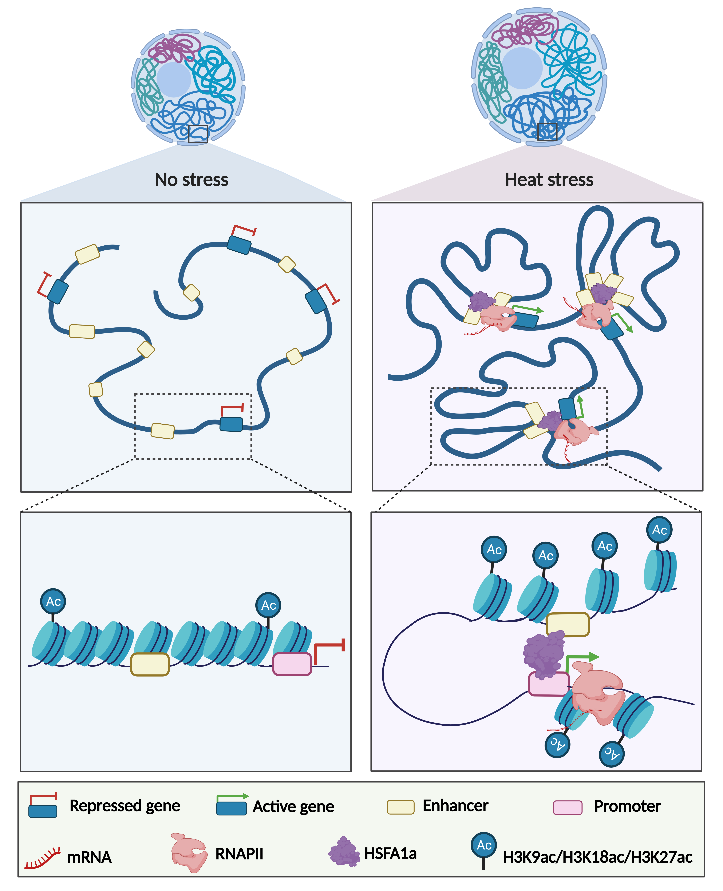3D chromatin reorganizations induced by heat stress
HSFA1a modulates plant heat stress responses and alters the 3D chromatin organization of enhancer-promoter interactions
The complex and dynamic three-dimensional organization of chromatin within the nucleus makes understanding the control of gene expression challenging, but also opens up possible ways to epigenetically modulate gene expression. However, to what extent and how stress induces dynamic changes in chromatin reorganization remains poorly understood. In a study published in Nature Communications by the CHROCYC team at IPS2, the genome-wide chromatin changes associated with transcriptional reprogramming response to heat stress in tomato were comprehensively investigated. Heat stress induces rapid changes in chromatin architecture, leading to the transient formation of promoter-enhancer contacts, likely driving the expression of heat-stress responsive genes. Furthermore, heat stress-induced chromatin spatial reorganizations require HSFA1a, a transcription factor (TF) essential for heat stress tolerance in tomato. These results indicate that the 3D reconfiguration of promoter-enhancer contacts allows TFs to control dynamically the transcriptional responses to heat stress.

